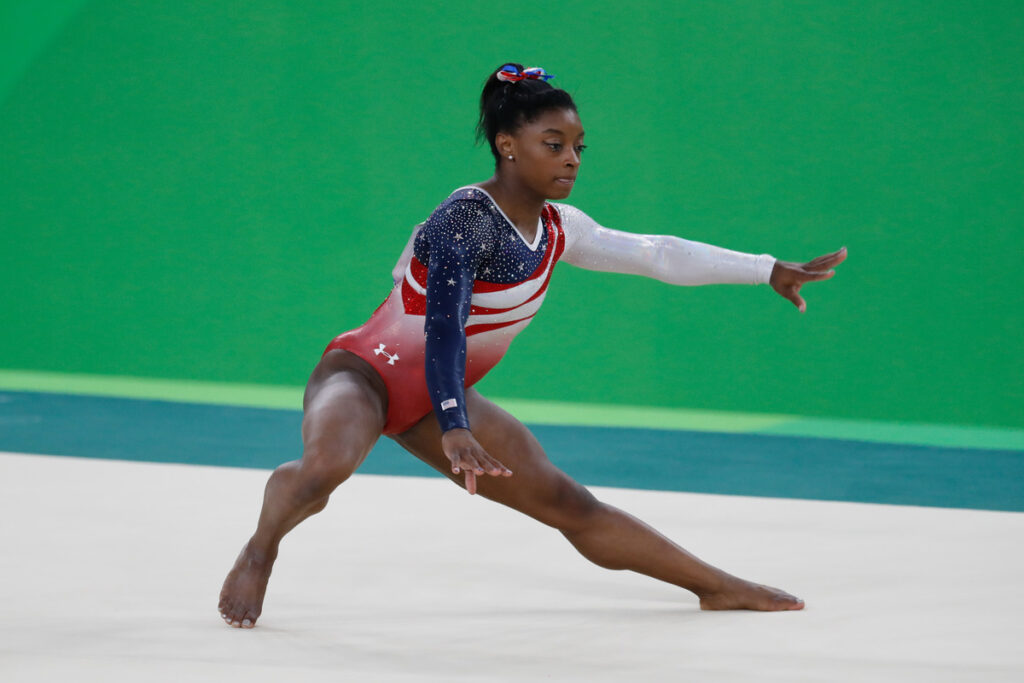“Does Simone Biles have diabetes?” is a question that occasionally appears online, sparking curiosity and speculation.
As one of the most decorated gymnasts in history, Simone Biles is often in the public spotlight, and her health disclosures draw significant attention.
While she has been open about various aspects of her mental and physical health, there is no public evidence or confirmed statement indicating that Biles has diabetes.
Let’s explore what we do know and why questions like these offer a broader opportunity to discuss health, awareness, and respect for privacy.
Does Simone Biles Have Diabetes?
No, Simone Biles has not publicly disclosed having diabetes.
Rumors around her health may stem from confusion or misinterpretation of unrelated disclosures.
In 2016, a cyberattack on the World Anti-Doping Agency (WADA) led to the leak of Biles’ private medical records.
The documents revealed that she had received a therapeutic use exemption (TUE) for medications related to Attention Deficit Hyperactivity Disorder (ADHD).
Some social media users speculated based on these documents, mistakenly linking ADHD treatments to diabetes or suggesting other conditions without evidence.
However, reputable sources and Biles herself have only confirmed her ADHD diagnosis.
There has been no indication—in interviews, social media, or official disclosures—that she has ever been diagnosed with type 1 or type 2 diabetes.
Simone Biles and Her Health Journey
Simone Biles has been a vocal advocate for mental health, particularly after her decision to withdraw from several events at the 2020 Tokyo Olympics.
She has openly discussed her experiences with anxiety, trauma, and the importance of self-care.
In addition to ADHD, Biles has used her platform to reduce stigma around psychological challenges among athletes.
Her transparency has inspired many, but she has not extended this disclosure to any chronic physical conditions like diabetes.
The Importance of Transparency in Athlete Health
Elite athletes often choose to share medical conditions to raise awareness or break stigmas.
Disclosures can inspire others with similar conditions and normalize conversations about chronic illness in sports.
However, such transparency is a personal decision and should not be expected or demanded.
Speculating about an athlete’s health without factual basis can lead to misinformation and breaches of privacy.
Instead, health-related curiosity should be guided by respect and an intent to learn, not assume.
Can Elite Athletes Have Diabetes?
Yes, many elite athletes live and compete successfully with diabetes.
Type 1 diabetes, an autoimmune condition that usually appears in childhood or adolescence, requires careful blood sugar management.
Type 2 diabetes, more commonly diagnosed in adults, can also be managed with lifestyle changes, medications, or insulin.
With proper medical guidance, athletes with diabetes can perform at the highest levels.
They often monitor glucose levels closely, adjust insulin dosages around workouts, and follow individualized nutrition plans.
Managing Diabetes in Competitive Environments
Athletes with diabetes face unique challenges, especially related to energy balance, recovery, and endurance.
Blood glucose fluctuations can impact focus, stamina, and injury risk.
Therefore, managing diabetes in sports requires a team approach: endocrinologists, trainers, dietitians, and the athletes themselves.
Technologies like continuous glucose monitors (CGMs), insulin pumps, and mobile apps make real-time tracking easier.
Personalized strategies help maintain performance while minimizing health risks.
Prominent Athletes With Diabetes
There are several high-profile athletes who have succeeded despite living with diabetes:
- Jay Cutler: Former NFL quarterback diagnosed with type 1 diabetes during his professional career.
- Gary Hall Jr.: Olympic swimmer with type 1 diabetes who won 10 Olympic medals.
- Scott Verplank: Professional golfer who has managed type 1 diabetes since childhood.
- Missy Foy: Ultramarathon runner living with type 1 diabetes.
These examples help dispel myths that diabetes limits physical potential or competitive success.
A Teachable Moment: Raising Awareness, Not Rumors
Asking “does Simone Biles have diabetes?” opens the door to a broader discussion about chronic conditions and public understanding.
Rather than speculate, it’s more productive to use this moment to educate and raise awareness.
Public figures do not owe the public full access to their medical histories, and respect for privacy must remain paramount.
Yet, their courage in sharing certain diagnoses can have ripple effects in breaking stigma and promoting inclusivity.
It’s About Education, Not Speculation
While Simone Biles has not been diagnosed with diabetes, the recurring curiosity around her health reflects a need for better public education.
Diabetes is a manageable condition, even at the highest levels of sport, and athletes who live with it are breaking barriers every day.
By shifting the focus from rumor to awareness, we can support both privacy and progress in health literacy.
Take Charge of Your Blood Sugar Naturally
Whether you’re managing diabetes or aiming to prevent it, understanding how the body responds to stress, performance, and nutrition is key.
If you’re looking for natural support to help stabilize blood sugar levels, GlycoFortin offers a blend of plant-based ingredients designed to promote healthy glucose metabolism, boost energy, and reduce sugar cravings.
Learn more about this daily supplement at the official GlycoFortin website.









